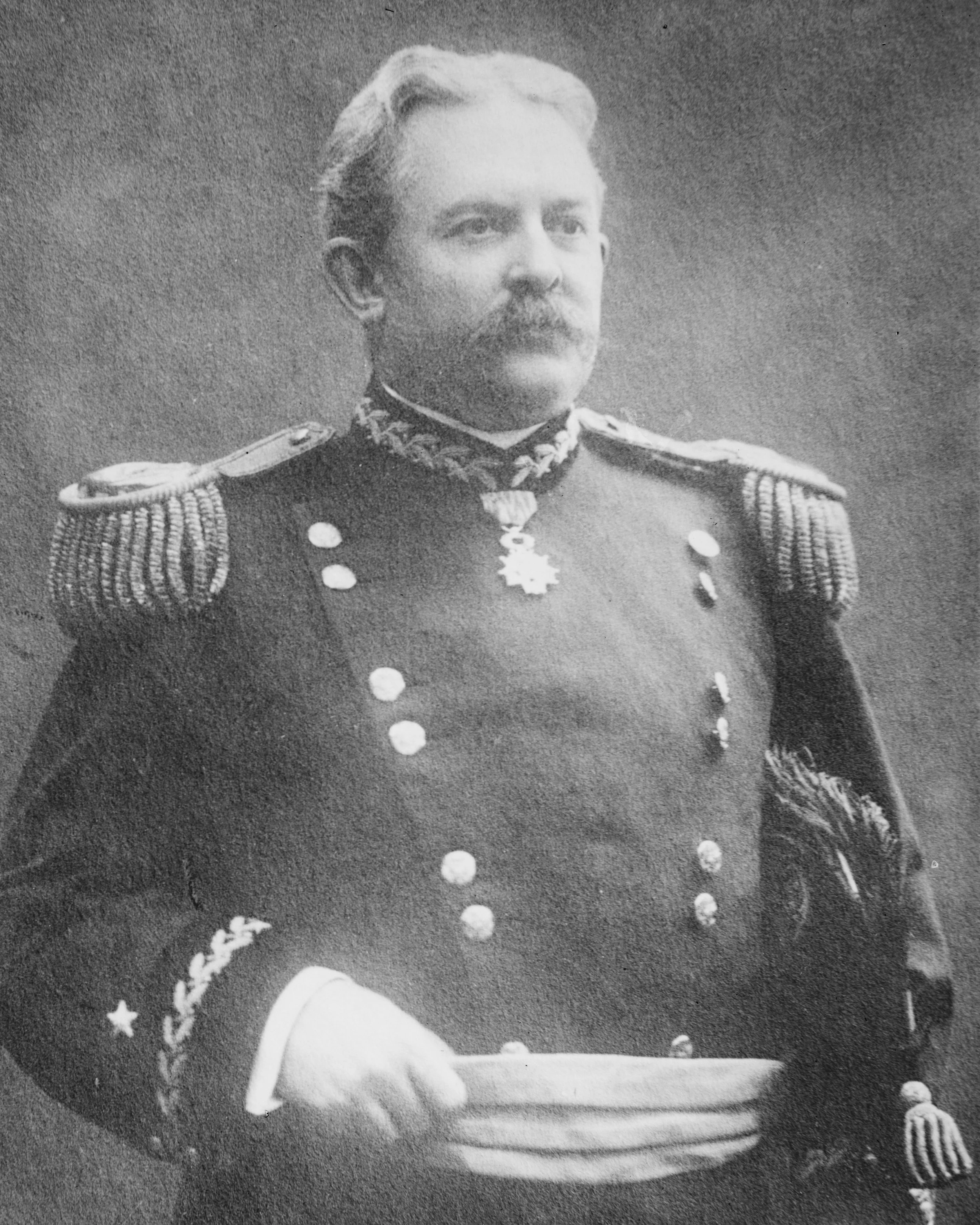James Franklin Bell
James, known as Frank, was born in Shelbyville, Kentucky, on the 9th of January 1856. Shelby County, where he grew up, was split between the Union and the Confederacy during the Civil War and his father lost a draw with his brothers when it was time who was to stay at the family home, while the rest went and fought for the Confederacy. Frank went to public school and worked on his father’s farm every day except for Sunday until the age of 16. He then got a job as a clerk in a general store that was owned by an uncle. He enjoyed playing baseball and enjoyed riding horses before receiving an appointment to the Military Academy at West Point in 1874. Frank graduated at the bottom of his class in 1878 and he was assigned to the 9th Cavalry, from which he attempted to resign his commission and was instead assigned to the all-white 7th Cavalry.
Frank became an instructor of military science and tactics, as well as math, at Southern Illinois University for three years beginning in 1886 and was also able to find time to study law and pass the Illinois bar exam. By December of 1890, he was promoted to First Lieutenant and was assigned once again to the 7th Cavalry and while at Fort Riley, Kansas, Frank became part of the Cavalry and Light Artillery School staff. He was assigned to be the secretary of the school before being assigned the aide-de-camp to General James Forsyth and being transferred to the Department of California, Fort Apache in the Arizona territory, and the Vancouver Barracks in Washington by February of 1898.
During the Spanish-American War, Frank was still in California as aide-de-camp but was soon commissioned to Colonel of Volunteers and organized a regiment. When they deployed in support of the Philippine Insurrection, He was promoted from Colonel of Volunteers, back to Captain in the Regular Army, and then to Brigadier General in the Regular Army. It was then his actions on the 9th of September 1899, that would earn him the Medal of Honor. The citation reads:
While in advance of his regiment, charged seven insurgents with his pistol and compelled the surrender of the captain and two privates under a close fire from the remaining insurgents concealed in a bamboo thicket.
Frank received the Medal of Honor on the 11th of December 1899, and when he returned to the States, he served as the head of the Command and General Staff School at Fort Leavenworth. He was appointed Chief of the Army Staff to President Theodore Roosevelt after he was promoted to Major General in 1907. Frank was the first Chief of Army Staff that had not served in the Civil War in 45 years. He returned to the Philippines in 1911 briefly before returning to the States to command the 4th Division in preparation for war with Mexico. While the division was close, it was never a part of the forces that served in the Mexican Campaign at Veracruz and Frank was assigned to the Department of the West in San Francisco.
In 1917, Frank was assigned to the Department of the East in New York and oversaw the Officers’ Training Camps, along with his aide-de-camp, Captain George C Marshall. In August of 1917, he accepted command of the 77th Division of the National Army at Camp Upton, New York. Four months later he sailed to France for firsthand observations of the conditions taking place in World War 1. We he returned in March of 1918, Frank was 62 and failed a physical exam required for overseas service and was deemed unable to deploy with the 77th. He was assigned back to the Department of the East at Governors Island, New York, where he remained until his death the day before his 63rd birthday, the 8ths of January 1919. James Franklin Bell is buried with his wife Sarah in Arlington National Cemetery: Section 3, Grave 1735-A.




